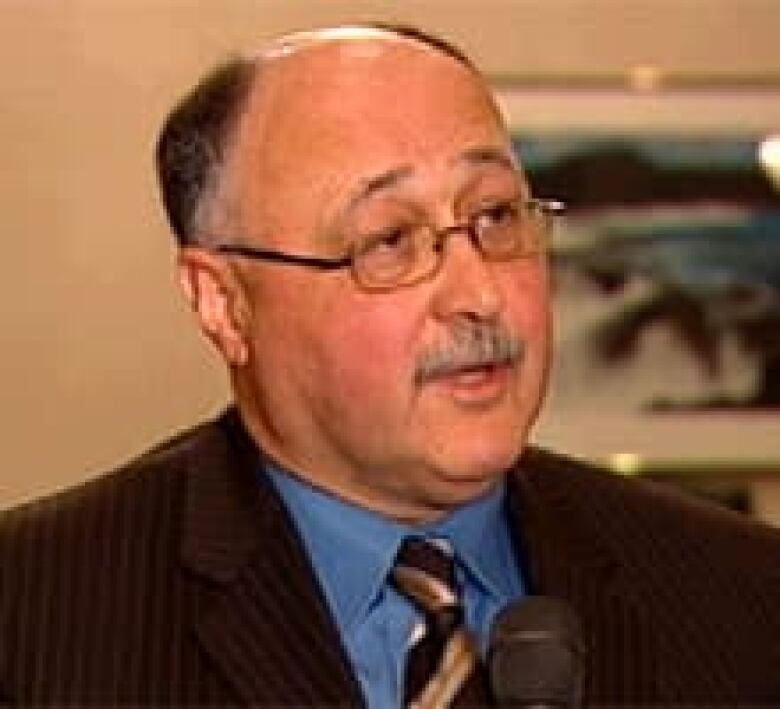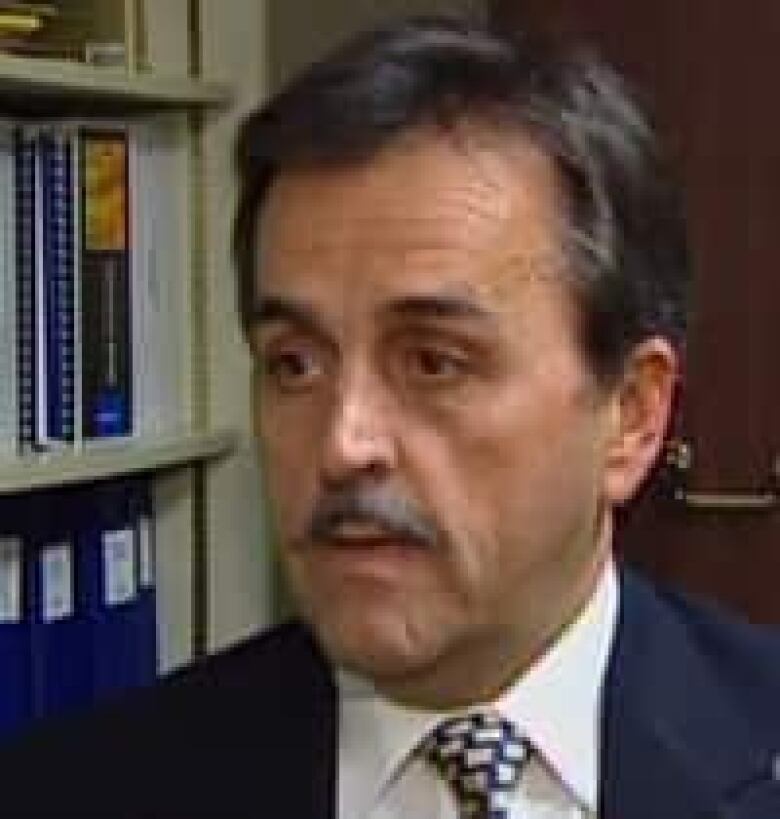Legal advice behind withholding of cancer data, inquiry told
Health minister admits to not having read important briefings on flawed tests
Newfoundland and Labrador's health minister admitted Thursday he did not read briefings on flawed cancer testing for several months, and that legal advice led health officials to not disclose what they knew about error rates.

Ross Wiseman told a judicial inquiry investigating the bungled testing that he was given thick briefing books when he became health minister in January 2007, but did not read extensive briefing notes about flawed hormone receptor testing until the issue boiled over months later.
Wiseman was caught off guard by a CBC News report on May 15 on court documents that showed Eastern Health managers were aware that the error rate of a large set of retested samples was several times higher than had been disclosed in a December 2006 technical briefing.
Wiseman immediately asked officials to brief him on the issue, which led to two days of intense discussions, including with Eastern Health's then chief executive officer, George Tilley.
'I wasn't getting a comfort level that anybody really knew what went wrong.' Ross Wiseman, N.L. health minister
He told the inquiry he remained uncomfortable with the explanations that he was given, particularly over what the root cause was.
"I wasn't getting a comfort level that anybody really knew what went wrong," he said.
"There was multiple comments being made to explain the complexity, rather than what happened."
Wiseman said he wanted to know "out of curiosity" why Eastern Health would tell one public venue, the media briefing, that the error rate was as low as 10 per cent, while revealing in another public venue, an affidavit filed in response to a then-pending class-action lawsuit, that it knew the figure was actually more than 40 per cent.

"The information that they released in December of '06 was guided by legal advice that they had," Wiseman testified.
"And who would've told you that?" co-counsel Sandra Chaytor asked Wiseman.
"Mr. Tilley would've told me that."
Tilley, who resignedlast July over a separate controversy handling radiology reports, is scheduled to testify at the inquirynext week. Justice Margaret Cameron began hearing evidence in March on what went wrong at an Eastern Health lab between 1997 and 2005, and how officials responded to the matter in the subsequent years even up to this winter.
Meanwhile, Wiseman said he did not have the opportunity to read briefing notes about the cancer testing after he was sworn in as health minister, because he was busy tackling other pressing issues and preparing for the annual budget.
Ministers expected to brief themselves: Jones
Opposition Leader Yvonne Jones criticized that admission. A former minister in the Roger Grimes government, she said every cabinet minister was expected to do their homework.
"We were always expected to read all the briefing notes," she said.
"There's an expectation that he [should read] them. If he didn't, then he fell down on the job, in my opinion."
New Democrat Leader Lorraine Michael said the issue raises the value of cabinet meetings.
"That really makes me question how prepared our ministers are when they are sitting down at the cabinet table, if they are not reading briefing notes," she said.
Meanwhile, Tom Osborne, who preceded Wiseman in the health portfolio, concluded his testimony at the inquiry on Thursday morning.
Osborne told reporters afterwards that his three days on the stand were emotionally draining.
Osborne testified that important information had not been shared with him, even though some of it was provided to Premier Danny Williams and others. He said if he had had the information, he would have done things differently.
"I feel if I had that information, certainly I think that we may have been able to inform the general public sooner than they had been informed," a visibly emotional Osborne told reporters.
"Maybe with the detail that was in [an August 2006] note, it would have given me more insight into additional questions that I should ask on behalf of the patients and the families."
That memo included far more detail than Osborne had been told, which itself was more than was disclosed at the December 2006 media briefing.
Osborne also testified that he was upset to later learn that Eastern Health had not provided the public with what it had previously shown him.












_(720p).jpg)


 OFFICIAL HD MUSIC VIDEO.jpg)
.jpg)



























































































